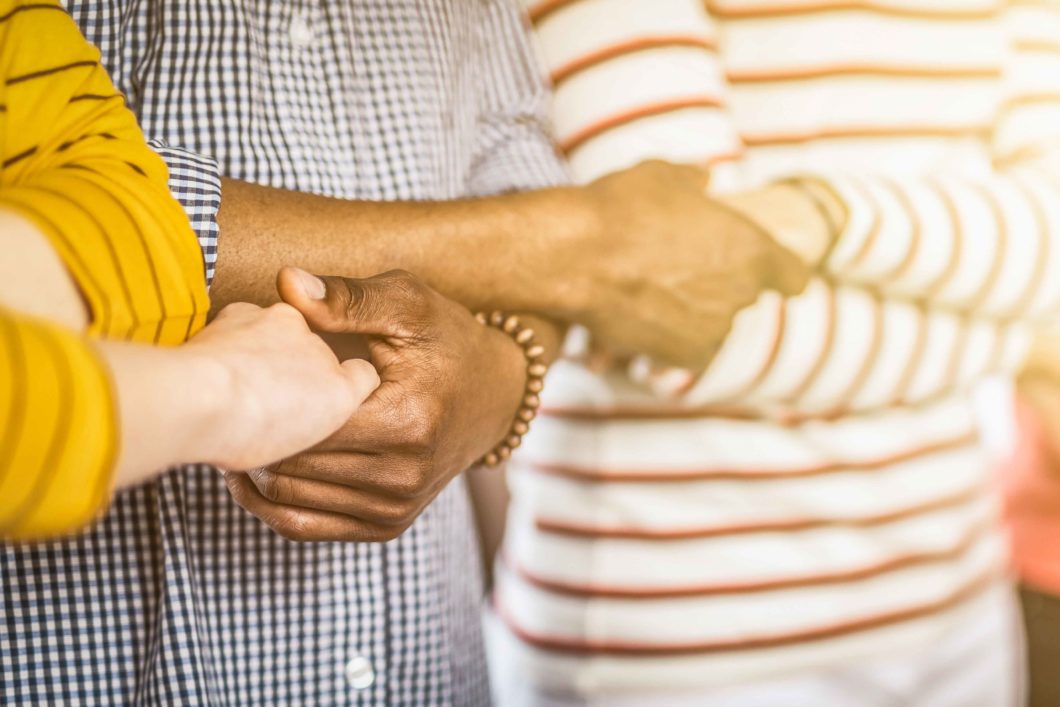While we recognize and condemn the multifaceted aspects of systemic racism and oppression in this country, we must also address the injustices many of our Black NSSLHA students face within their own CSD programs.
Last week, we opened our Instagram account to our NSSLHA students who are Black, Indigenous, and People of Color (BIPOC) to amplify their voices. We asked, “What have you experienced as a CSD student?” We were overwhelmed by the sheer volume of stories we received in just a 24-hour period. Here are a few:
- “Told I was accepted because I was the safest Black choice to reach their diversity quota.”
- “Advisor told me, ‘People like you do better in vocational schooling.’”
- “A peer said that accent modification was to help Black people sound less dumb.”
- “I’ve had feelings of not being accepted by peers or invited to outside events because I’m not in a sorority or white.”
- “Micro-aggressions from classmates.”
After reading through all of the DMs we received, it’s obvious that these students’ stories opened a lot of eyes.
Expand Your Knowledge
As a CSD student and future clinician, you should be actively learning and expanding your knowledge on cultural competence, cultural humility, sensitivity, diversity, and inclusion. Then, reflecting on what it means for you as a human, a student and peer, and a future clinician.
To help get you started, we’ve pulled together some resources:
Racism in the University Setting
- Addressing Disparities in the Wake of Injustice, Violence, and COVID-19 [ASHA’s Chief Staff Officer for Multicultural Affairs Vicki Deal-Williams, CCC-SLP; ASHA Leader Live]
- The Experiences of Undergraduate Students of Color in the Field of Speech-Language Pathology [Charu Dwivedi; Eastern Michigan University]
- The Adverse Impact of Racial Microaggressions on College Students’ Self-Esteem [Kevin L. Nadal, Yinglee Wong, Katie E. Griffin, Kristin Davidoff, and Julie Sriken; Journal of College Student Development]
- The Cost of Balancing Academia and Racism [The Atlantic]
Your Peers’ Perspectives
- The Complicated American Culture—How It Affects Us As Future Professionals [Sara Benanti-Atiyat; NSSLHA Blog]
- From Mexico to the States: My Journey to Become an SLP [Estefani Parra; NSSLHA Blog]
- Breaking the Diversity Barrier in Speech-Language Pathology [Molly Loughman; Emerson Today]
- Our Clients Are Diverse: Why Aren’t We? [Jacquelynne C. Rodriguez; ASHA Leader]
- Language and Identity—Shifting Away from a Deficit Perspective on African American English [Megan-Brette Hamilton, PhD, CCC-SLP, and Dionna Latimer Hearn, PhD, CCC-SLP; ASHA Voices podcast]
Challenge Your Comfort Zone
- Self-Assessment for Cultural Competence [ASHA website]
- Fight the Status Quo—Be a Diverse Leader [Charlotte Miller; NSSLHA Blog]
- Let’s Get Outside Our Comfort Zone [Charlotte Miller; NSSLHA Blog]
- That’s Unheard Of [ASHA website]
This is by no means an exhaustive list of resources but use this as a starting point to do some more research on your own.
Start the Conversation
Once you’ve listened, learned, and reflected, we recommend you look at the culture within your university and CSD program. Then, start discussions with your peers, NSSLHA chapters, and CSD departments. Include active listening in your discussions. These conversations aren’t easy, but they’re an important step toward ending racial injustices.
Here are some resources to help you facilitate those hard conversations:
- Supporting a Culturally and Linguistically Diverse CSD Community [Nicole Flournory; NSSLHA Blog]
- Our Voices Count: A Panel on Multicultural Experiences [Teresa Girolamo; NSSLHA Blog]
- So You Want to Talk About Race, Ijeoma Oluo’s address during ASHA’s Office of Multicultural Affairs 50th anniversary [ASHA video]
- Ijeoma Oluo Talks Race, Conversation, and Microaggressions [ASHA Voices podcast]
Although we cannot change the past, we have the power to change the future. We can start by looking at our own racial biases, then having conversations within our own peer groups and communities. This may just be the start, but it’s a powerful start. Will you take the initiative and be a part of the change?


I completed my undergrad degree in Speech Language Pathology at Wayne State University In the 90s. However , I wan not allowed into their graduate program . I was the only African American in my classes . When I spoke to the coordinator and chairperson of the department I was told good luck! (Karen. O ‘Leary) I will not let this racist institution and program stop me even at my age . I bought paid for studied for a profession that changed its requirements in order to work professionally. Wayne State University nor AHSA will control me nor keep me from helping others!